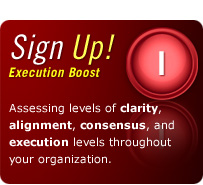STEAM Tip: Motivation
December 20th, 2009
Motivation is to humans what an engine is to a car; if the engine is not operating well, the car will not get where it needs to go as efficiently as it could and may waste a lot of energy (and create long-term damage to the car) along the way. If there are any goals that you are struggling to complete on time or at high levels of quality, you may benefit from a “motivation tune-up” from time to time. Here are some things to consider as you look under the hood to check out the engine that drives what you do.
1. Think about how strongly related certain activities are to your most meaningful goals and objectives in life. If certain activities are not strongly related to outcomes you truly and deeply value (e.g., enjoying life, being a great parent, doing meaningful work), you may wish to think about methods of decreasing the frequency (do it monthly instead of weekly), intensity (do it at 1/2 the effort) or duration (spend 1/2 the time on it) of the these activities. Or, you may wish to think about ways to delegate or delete the activities from your life completely. Can someone else beside you complete certain activities? Can you survive without engaging at all in certain activities? Some of the most common activities that people have told me that they want to delete from their lives include worrying about things they have no control over, complaining without action, gossiping, and over-planning. To improve your engine’s performance, you may wish to create a list of activities that you would like to delegate to others and a list of activities that you would like to stop performing as often as you do. (NOTE: To those who have completed Phase I of the STEAM Training Manual, you may wish to review the “Living Your Priorities” exercise and use the activities that you identified as non-critical to help you with this list).
2. Pay attention to your CAR: Boost intrinsic motivation for activities that are strongly related to your most meaningful goals and objectives. For activities that you would like to continue to engage in, here is some more motivation-related information to consider: Two renowned researchers (Drs. Edward Deci and Richard Ryan) have found a link between intrinsic motivation and our perception of (a) competence, (b) autonomy, and (c) relatedness. The more one has of these three factors in relation to an activity, the more likely it is that one will regularly feel motivated to engage in that activity. Here are some thoughts on how to increase your competence, autonomy, and relatedness (or “CAR”) for activities that you would like to experience more motivation for:
- Competence. Competence can be facilitated by engaging in activities that challenge you, but do not overwhelm you. If you find yourself overwhelmed while engaged in (or even while thinking about) an activity, you may wish to engage in a less challenging form of the activity in question until you feel more competent. Once the less challenging activity becomes easy or routine for you, you can take on a more challenging form of the activity. For example, if an hour-long speech on methods of increasing motivation in front of 1,ooo people seems like too much for you, you may wish to engage in a short five-minute talk on one way to increase motivation in front of five friends until you have more competence in relation to this activity. You can then move up to 20-minute talks in front of 10 friends and 10 strangers until this becomes easier for you, then continue to increase the length, amount of content, and number of audience members until you are very comfortable with multiple hour-long talks in front of many hundreds of people on a variety of different topics.
- Autonomy. The experience of autonomy can be cultivated by giving yourself as many choices as possible. If you are feeling “locked in” to certain activities, goal-set in ways that provide you with more freedom. For example, if you goal-set to run 5 miles every week, you may wish to increase autonomy by goal-setting to run, bike, or swim every week. That way, you have provided yourself with more choice regarding your weekly fitness-related goals.
- Relatedness. Relatedness can be enhanced by surrounding yourself with people who have similar goals and/or by selecting goals that are related to your most important objectives in life. If your goals connect you to important others in your life and/or are related to objectives that really matter to you, you are more likely to feel intrinsically motivated to achieve them. You may wish to set more goals that are related to objectives that are truly meaningful to you and seek out people who will support your goal and/or will pursue that goal with you. For example, if you believe that the world needs more outstanding leaders and you want to become such a leader, you may wish to spend more time with people who (a) you feel will genuinely support you in this endeavor, (b) believe that better leadership is needed in the world, and (c) are interested in sharpening their own leadership skills.
3. When autonomy is limited, work to increase relatedness. As mentioned above, working to reduce time spent in activities that we do not perceive to be strongly aligned with our primary objectives in life is a great way to increase motivation. However, most of us will experience times when we are required to do something that we would rather not do (for example, take a training or a course that we do not believe to be powerfully aligned with our objectives in life) in order to attain something we want (for example, to keep our jobs or attain a degree). When autonomy is limited in this way, it can be helpful to work to increase relatedness. Instead of thinking something like this: “Why do I have to take this training/course?” you can ask a question that is more helpful to your motivation like this: “How can I find ways to relate this required training/course to my primary objectives in life?” For example, if you are required to take a training on customer service or a course in psychology, but you are only interested in computer programming, you can think about how to use the material covered in these classes to help you in other important areas of your life (how certain customer service practices can help you improve relationships with your friends, how the psychology course might help you to become more motivated to work out more frequently, how your presence in classes might lead to meeting new friends or helpful business connections). When autonomy is limited, motivation for required activities can be improved by regularly seeking ways to boost relatedness by constantly searching for ways that the required activities can relate to our most important goals and objectives in life.
If you believe that more motivation for certain activities could be helpful to the accomplishment of certain goals, you may wish to keep this article in mind while goal-setting. For example, the goal “Complete the report and presentation that Frank and I have been assigned for next month” could be broken down into goals that fire up one’s motivation engine like these: (a) “Stop worrisome thoughts about the project whenever I become aware of them and re-focus my mind on what needs to be done,” (b) “Delegate research to Frank (because he loves research and I do not),” (c) “Practice presenting Frank’s research (because I love presenting and Frank does not), and (d) “Find a group of people who are deeply invested in improving presentation skills and/or promoting motivation in others and practice with them daily (starting with 10-minute segments until we feel competent enough to lengthen the presentation).” Goal-setting with your “motivation engine” in mind will help ensure that you will keep your motor running for the most important goals and objectives in your life, while avoiding the all-too-common motivation break-downs associated with failing to attend to this important component of success and satisfaction.
FINAL NOTE: If you were linked to this article by a video or email, please return to that link and proceed with any other instructions that you deem helpful. If you are using the Mission Fulfillment System to identify and track goal achievement, please keep this article in mind when you develop and/or modify your goals on the system. For more articles related to improving STEAM, see our Self-Mastery, Interpersonal Expertise, and Mission Connection tips.
Article Filed under: 5. Motivation Tips



3 Comments Add your own
1. Bryce Maxwell | August 8th, 2014 at 2:02 am
Having had the opportunity to have Dr. Higley as an instructor, I feel that one of the single most important questions we were encouraged to ask ourselves involved our intrinsic motivation.
“Can you survive without pursuing the goal at all?”
While completing my B.A under Dr. Higley, I was highly motivated in my intellectual pursuits. Other students were not as excited about school as I was. Knowing that attendance was not mandatory, I often wandered why so many students would continue to come to class. Have we grown so “zombie-like” as a society that we lack the introspection and the courage to ask ourselves whether we really want to pursue what we are pursuing. I felt at peace to do such “soul searching” while in Higley’s classes because I didn’t feel overwhelmed by the various societal pressures that would have us all getting degrees for no reason other than monetary security.
In addition to asking yourself whether you can “survive” without a certain goal, dare to ask yourself whether you “enjoy” the goal you are pursuing (for tips regarding “Enjoyment” go check out #3 in II. STEAM – Personal Effectiveness).
2. Crystal Agosto | March 19th, 2015 at 12:15 pm
This article relates to motivation, the “M” in STEAM. Sometimes, if you are having a hard time meeting a goal, it is important to assess how strongly the goal is related to your most meaningful objectives in life. If it is not strongly related it may be time to decrease frequency, intensity, or duration of the goal or to stop pursuing that goal altogether. I think this article is important because sometimes “try again” is not the right philosophy. Sometimes failure might be telling you that this is not the right goal for you and maybe you should try a new goal that you enjoy more and that relates more to your interests. Trying different goals out is a good way to determine what feels right for you, but sometimes it is good to let go of a goal that is just causing you misery and frustration. If you decided that your goal is worth pursuing, make sure it is not overwhelming, that you give yourself choices and that you surround yourself with others that have similar goals.
3. Hannah Williamson | April 5th, 2016 at 10:34 am
This article is extremely helpful for this who are not enjoying activities are who are having a hard time completing goals they have set for themselves. I am a personal user to this system and have been for over a year now. I always set goals for myself without thinking how they can be broken down into smaller goals to help achieve them with less anxiety and more motivation. This article has a wonderful way of showing people that a huge goal can be broken down into a more manageable one with multiple steps. Many people see a goal that is so large that it become overwhelming and therefore decreases their motivation dramatically. If that person were to read this article they would see how to break that goal down into smaller, more attainable goals and how doing so would greatly benefit them.
If you are struggling to meet a goal then trying using this system to make it more manageable for you. Your motivation is one of the keys to achieving goals and if your motivation is torn down by something that seems to huge that it is impossible then you will not meet your goal. If you do end up completing the goal with no motivation to do so then you most likely will end up doing it with the least amount of effort. This is not beneficial to your or your goal.
Trackback this post | Subscribe to comments RSS Feed
Leave a Comment
Some HTML allowed:
<a href="" title=""> <abbr title=""> <acronym title=""> <b> <blockquote cite=""> <cite> <code> <del datetime=""> <em> <i> <q cite=""> <s> <strike> <strong>